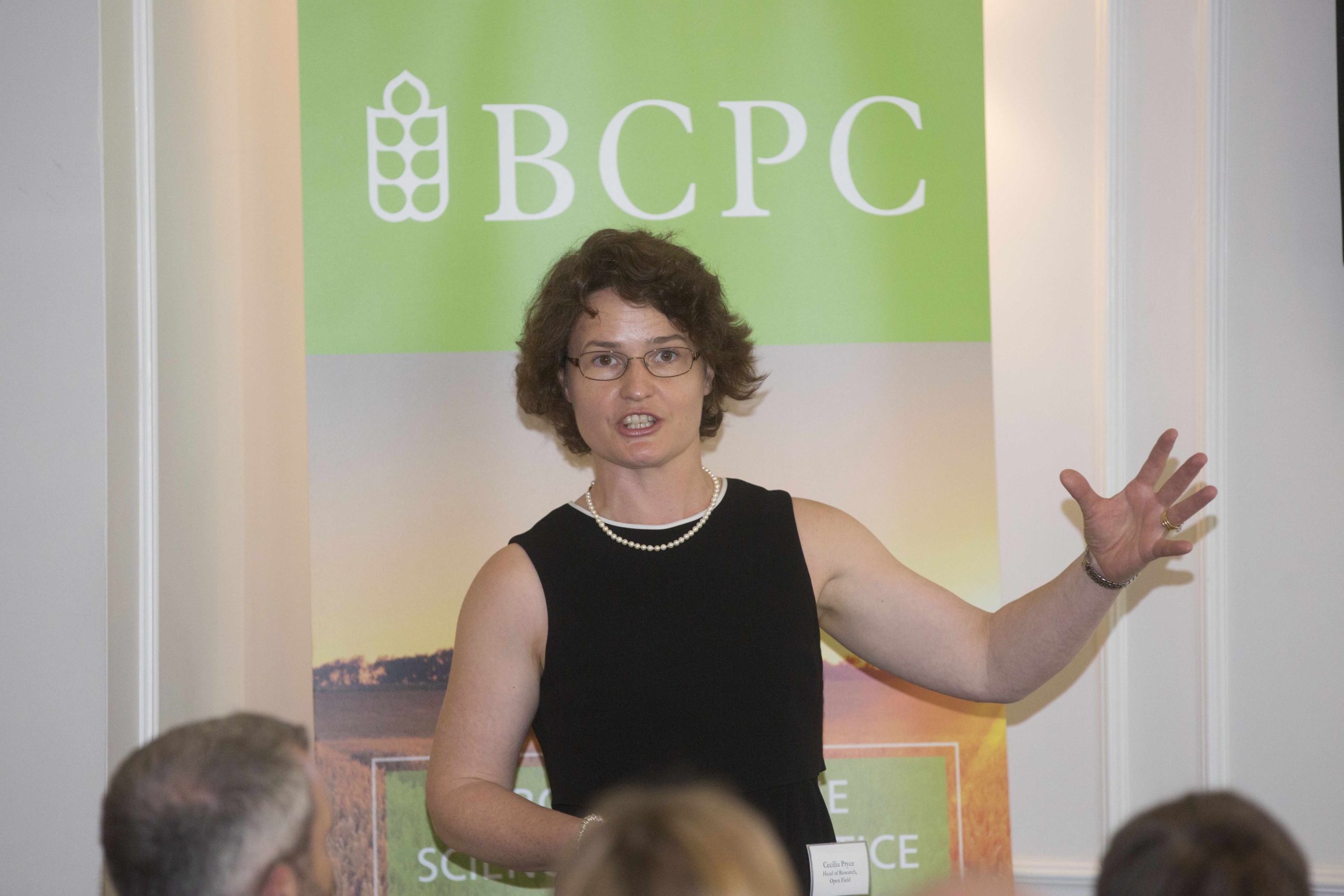
The big questions for UK agriculture post-Brexit
17th July 2017
Presenting to a full-house at the joint BCPC VI event held at The Farmers Club
In just 21 months’ time the UK agricultural sector will operate outside The Common Agricultural Policy, so how quickly will changes be felt, what form will the changes take, and how will the UK manage to take charge of its own agricultural destiny?
These were some of the questions addressed at a recent event organised by the British Crop Production Council and The Voluntary Initiative at The Farmers Club in London.
The event, titled “Arable Production – Science and Compliance: Preparing for an Uncertain Future” attracted senior industry speakers who each highlighted practical considerations and possible answers for profitability post-Brexit.
First to present was Will Gemmill, Head of Farming, Strutt & Parker, who provided information on current farm profitability including the UK’s relatively higher costs of production than many of its competitors, and how the likely changing environment of reduced subsidies, and shift in support, would significantly reduce margins across different farm types.
Delegates then heard from Defra’s Head of Future Farming Policy, Guy Horsington, who explained that 80% of the regulations currently affecting agriculture come from the EU, and while there is a will to return to a scientific risk analysis of using plant protection products, a post-Brexit Agricultural Policy could be 6 years in the making.
Guy Smith, NFU Vice President, then provided an update on activities already well underway in ensuring future policy enables the UK farming sector to be truly competitive. This was a theme picked up by the Openfield’s Head of Research Cecilia Pryce, who highlighted the realities of global grain trading including the problems the UK faces with limited ports of sufficient size to support potential benefits from new trade deals outside the EU.
In the afternoon, Jim Orson highlighted how historical improvements in wheat yields from the arrival of herbicides and short straw varieties have now plateaued and if productivity in the future is to be increased, farming practices will need to change.
Northants farmer Andrew Pitts then demonstrated how the use of soil and yield maps could be used to remove the least profitable parts of a farm to improve margins significantly, and at the same increase the use of wild flower meadows to attract pollinators and natural enemies of insect pests.
This focus on the environment was picked up by Chris Musgrave of Musgrave Management Systems who shared the experiences and benefits achieved following the selection of a farmer-led initiative as one of 12 Nature Improvement Areas, demonstrating a significant and positive impact on the local environment whilst continuing to farm commercially.
This is a blueprint that Chris suggests could be widely replicated – concluding with a Socrates’ quote: “The secret of change is to focus all your energy, not on fighting for the old but on building the new.”
This event was a great success in stimulating thinking on the significant changes and opportunities ahead. Planning for change now was a key theme to come from this, and BCPC looks forward to arranging further forums for debate, discussion and networking.
Speaker presentations:
- BCPC-VI-FC Agenda
- BCPC-VI Seminar – Will Gemmill
- Guy Horsington, Defra Head of Future Farming Policy
- Guy Smith, NFU, Vice President
- BCPC-VI Seminar – Cecila Pryce
- BCPC-VI Seminar – Jim Orson
- BCPC-VI Seminar – Andrew Pitts
- BCPC-VI Seminar – Chris Musgrave
- BCPC-VI Seminar – Chris Musgrave Text
Next on BCPC’s agenda is the BCPC Congress in Brighton, “Achieving both productivity and safety improvements through better regulation”, 31 Oct – 1 November 2017.

